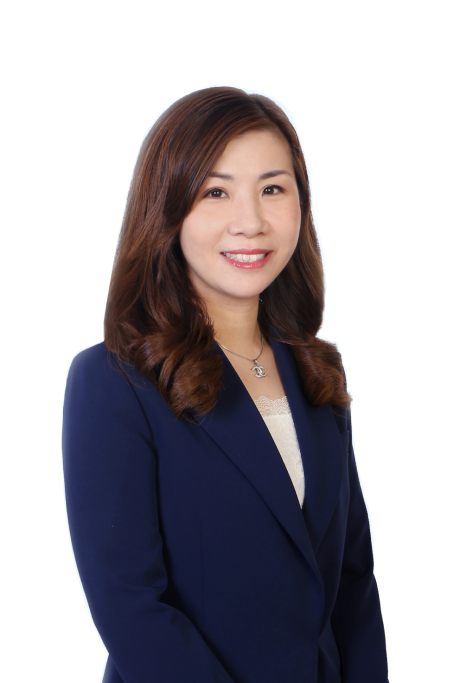


Medically reviewed by Dr. Sim Hsien Lin, Consultant General Surgeon (Colorectal Surgery)

Diverticular disease is a common condition found in approximately 50% of individuals above 60 years old. Below, we provide an overview of diverticular disease and diverticulitis, its causes, symptoms, diagnostic modalities, and various treatment options.
Diverticular disease is a gastrointestinal disorder in which pouches form in the large intestine. These pouches are known as ‘diverticula’.
The large intestine is also known as the colon. It is divided into the following parts:
Histologically, from inner to outer layers, the colon has a total of 4 layers:
These layers are supplied by an artery called the ‘Vasa recta’.
Diverticular diseases occur when the mucosal and submucosal layers herniate through a potential weakness in the muscular wall of the colon, forming a diverticulum. Diverticula generally are multiple. Each diverticulum is typically 5 to 10 mm in diameter, but at times can exceed 20 mm. Most commonly, the sigmoid colon is affected.
Diverticulosis: Presence of pouches in the colon.
Diverticular disease: Clinically significant and symptomatic diverticulosis.
Diverticulitis: Inflammation in the diverticula. May be complicated or uncomplicated.
The various causes of diverticular diseases are:
All these causes an increase in the colonic pressure which results in bulging in the areas of insertion of the vasa recta, thus, leading to the development of diverticulosis.
If the mouth of the diverticulum becomes blocked with inspissated faeces, it leads to localized inflammation and microbial proliferation in the pouch, resulting in diverticulitis.
In older individuals, the cause of diverticular disease is the neural degradation that occurs with age resulting in uncoordinated contractions, and subsequent increased pressure.
Medicines like nonsteroidal anti-inflammatory drugs, corticosteroids, and opiates; obesity, lack of physical exercise, diets rich in red meat and fat, smoking habits are seen to be the risk factors for the development of diverticular diseases.
There may be no symptoms and you may only get diagnosed on a screening examination, or you may present with infectious complications, or gastrointestinal bleeding.
In diverticulitis, the common symptoms are:
In very severe cases, inflammation in the diverticular pouch may progress leading to the formation of pus in the pouch. This condition is known as a diverticular abscess. After the abscess forms, the pus can result in perforation of the wall where the pus or feces leaks into the abdominal space. This is a life-threatening situation and needs prompt management.
In this case, the patient may present with severe abdominal pain with or without altered vital parameters.
Diverticular disease can be diagnosed through further evaluation. Your doctor may also opt for confirmation via colonoscopy or CT scan of the abdomen.
Colonoscopy is often used for diagnosing diverticular diseases. However, it cannot be done to diagnose diverticulitis due to the risk of perforation.
In some patients, blood tests and stool tests may be done depending on the clinical presentation.
As most patients do not present with symptoms; they are only diagnosed on a screening colonoscopy test. In this case, lifestyle modification measures need to be followed without any active intervention.
Lifestyle modification measures include:
Furthermore, medicine for treatment of constipation might be helpful for patient with severe constipation.
If you present to your doctor with symptoms, management depends on whether the diverticular disease is complicated or uncomplicated. In case of uncomplicated diverticulitis, you are given oral antibiotics for mild symptoms. However, in moderate to severe symptoms, you may need hospitalization for intravenous antibiotics administration.
In complicated cases, the following may be present:
In these cases, hospitalisation and treatment with intravenous antibiotics, bowel rest, and surgical consult are necessary. If a diverticular abscess is evident on a CT scan, the patient may have to undergo drainage of the abscess by a needle inserted under CT scan guidance or definitive therapy with surgery.
If there is ongoing inflammation after percutaneous drainage, further surgery may be needed such as resection of the diseased area with or without creation of a colostomy (diversion of feces out through an opening in the skin). The colostomy is generally temporary, and the bowel can be rejoined after 6 to 12 months if the health of the patient permits.
Patients with diverticular disease may not have symptoms but those with diverticulitis present with a spectrum of gastrointestinal symptoms. If diagnosed and treated early, serious sequelae of complications can be avoided. Hence, make sure to visit a specialist if you have the symptoms mentioned above. Above all, eating food rich in dietary fibre and drinking plenty of water is seen to prevent the occurrence of diverticular disease. So, make sure to eat right and adopt a healthy lifestyle.




Dr. Sim Hsien Lin is a specialist colorectal surgeon in Singapore with over 10 years of experience in colorectal surgery. Her sub interests include laparoscopic colorectal surgery, transanal endoscopic microsurgery (TEMS), surgical management of piles, inflammatory bowel diseases and complex anal fistulas.
Read Full BioCome visit our clinic, which are equipped with modern and updated equipment, and a team that will take care of all your needs.
Dr. Sim became a Fellow of the Royal College of Surgeons (Edinburgh) in 2011, winning the Gold Medal award at the FRCS Exit Examination that year.
Dr. Sim firmly believes that transdisciplinary care is the key to supporting both the elderly and complex patients through their perioperative and recovery journey.
Dr. Sim firmly believes that transdisciplinary care is the key to supporting both the elderly and complex patients through their perioperative and recovery journey.
Book An AppointmentPlease fill up this form and we’ll get back to you shortly!

For quicker response, call us at+65 6261 9227

Chat with our friendly clinic staff through WhatsApp!